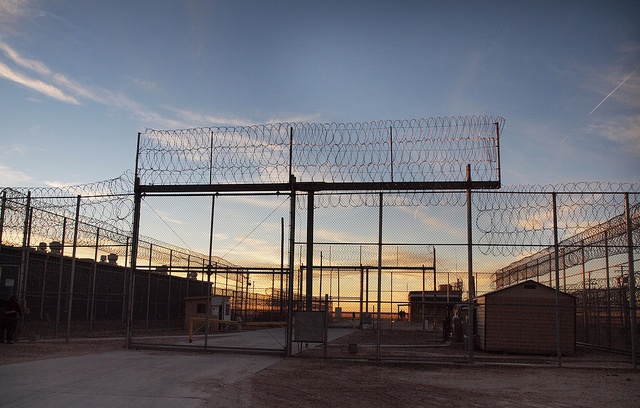How the South could 'un-choose' mass incarceration

There's growing bipartisan consensus that it's time to address the South's mass incarceration problem. (Photo by H. Michael Karshis via Flickr.)
Mass incarceration, an issue that has long plagued the U.S., has been in the news recently, with President Obama and Republican and Democratic presidential candidates alike pointing to the nation's atrocious numbers and calling for reforms.
The U.S. has had the highest incarceration rate in the world since 2002. It is home to 5 percent of the world's population but more than 20 percent of the world's prisoners. From 1978 to 2012, the population in state and federal prisons jumped from just over 300,000 to 1.5 million.
And if the U.S. is the incarceration capital of the world, the South is its epicenter. Southern states have the nation's highest rates of incarceration, led by Louisiana. The rise of mass incarceration in the region has been fueled by the fierce backlash to African Americans' gains in civil and human rights following Reconstruction and the civil rights movement.
The dire human and economic toll mass incarceration has taken on Southern states as well as recent activism like the #BlackLivesMatter movement around racial disparities in criminal justice have created momentum for reform. Last week in North Carolina, a symposium on "Understanding and Dismantling Mass Incarceration" hosted by the North Carolina Commission on Racial and Ethnic Disparities in the Criminal Justice System brought together more than 150 leaders from across the state ranging from judges to attorneys to community members and advocates to discuss the problem and solutions.
The tone for the day was set by historian Heather Ann Thompson of the University of Michigan in a morning keynote in which she discussed mass incarceration from a historical and public policy perspective and its impact on communities, the economy and democracy.
"We made mass incarceration. It was a policy choice, not a crime imperative," Thompson said. "And if we chose it, it means we can un-choose it."
Other speakers pointed to policies in the region that are helping to reduce the number of incarcerated people, including an effort in Durham, North Carolina to divert young people out of the school-to-prison pipeline. Former Texas state Rep. Jerry Madden, Nicole Porter from the Sentencing Project and Will Harrell from the American Civil Liberties Union highlighted bipartisan reform efforts in Texas that have successfully reduced the number of prisons in the state and served as a model for reform efforts in other places including Alabama, Kentucky and Mississippi.
One unique and powerful voice at the symposium came from a spoken-word artist who had been formerly incarcerated himself. Sean Ingram, now an author, educator and musician based in Raleigh, North Carolina, told the audience that although he now travels the country and has started his own businesses and programs, at the end of the day, on paper, he will always be a former felon. He discussed how that reality has shaped his life, and performed a spoken word piece.
He concluded his remarks, saying on behalf of himself and currently and formerly incarcerated people, "Give us an opportunity. Give us education. And we can make it from there."
Watch this video for Sean Ingram's full remarks. His spoken word performance begins at 7:30.
Tags
Allie Yee
Allie is a research fellow at the Institute for Southern Studies and is currently studying at the Yale School of Management. Her research focuses on demographic change, immigration, voting and civic engagement.
